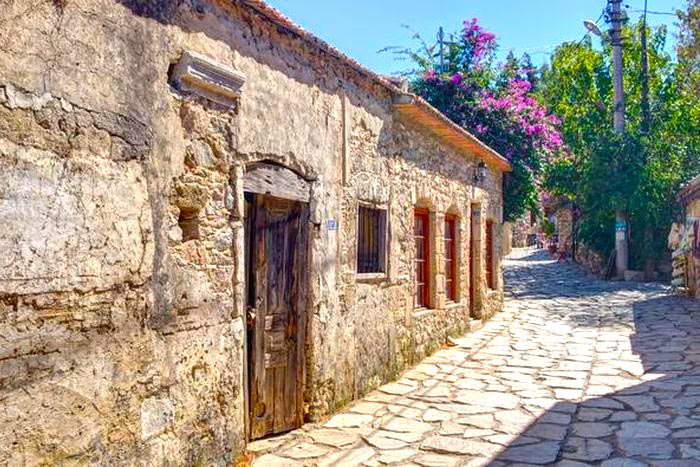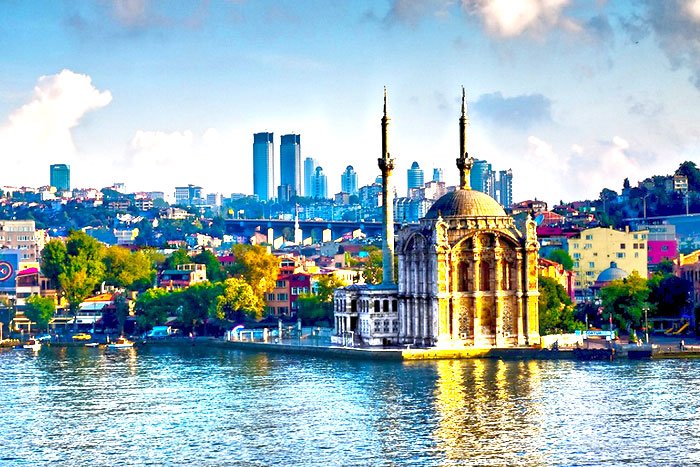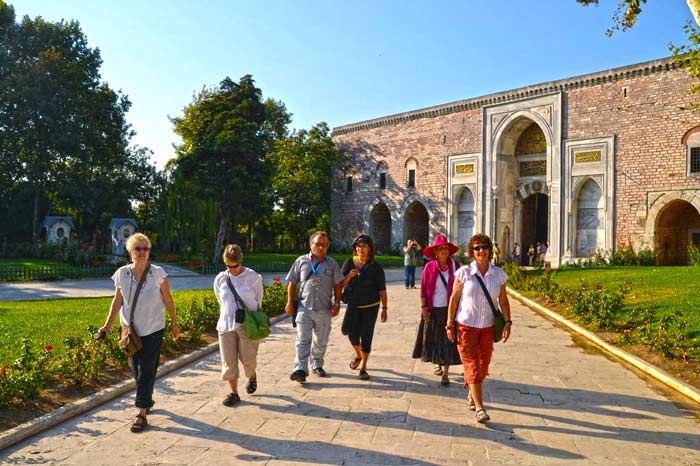Turkey Climate
Private Turkey Tours – Turkey borders the Black Sea and Georgia and Armenia to the northeast, Iran to the east, Iraq to the southeast; the Syrian Arab Republic and the Mediterranean to the south; the Aegean Sea to the west and Greece and Bulgaria to the northwest. Turkey’s climate, like its location, is varied and complicated, to say the least. Because of the country’s geographical conditions it is difficult, if not impossible, to pin-point a climate for the country as a whole. But it’s not difficult at all to plan guided tours turkey. The right guide and the right region with appropriate climate are enough to start.
Turkey is split into 7 different regions – Marmara, Black Sea Coast, Eastern Anatolian, South-eastern Anatolia, Central Anatolia, Mediterranean and Aegean. Each region has a vastly different climate which is primarily affected by its proximity to mountain ranges and different seas and oceans. On the whole, the Marmara, Aegean and Mediterranean coasts have typical Mediterranean climates with hot summers and mild, wet winters. The east of the country is mountainous with warm summers and very cold, snowy winters. Central Turkey, located on an interior plateau has low rainfall and cold or very cold winters.
Private Turkey Tours Seasons and Weather
Istanbul and European Turkey experience hot summers and cold winters with snow being a common feature. Spring and autumn, from April to May and from September to mid November respectively are the ideal times to visit Istanbul and the inland regions when temperatures are pleasant and the skies are clear. Istanbul’s location near the sea means it can be quite a windy city, especially in the winter.
The Aegean and Mediterranean coasts both enjoy a typical Mediterranean climate characterised by mild winters and hot summers, which makes the beach resorts of Marmaris and Kusadasi popular year-round destinations. The majority of rainfall occurs in winter along the coast so the summer months remain hot and dry, perfect for topping up that tan. As you travel further east in Turkey the extremes in climate become more pronounced with very hot and dry summers reaching highs of 40°C and bitterly cold winters with heavy snowfall. Spring, autumn and the shoulder months of summer are the best times to visit the region when temperatures are mild and pleasant. And it tends to stay relatively dry.
Turkey is complex in climate. It divides in five regions. These are the Black Sea region in the north, the Sea of Marmara region in the northwest. Then, the Aegean Sea region in the far west, the Mediterranean Sea region in the south. And the Anatolian Plateau region in the country’s centre.
Black Sea and Marmara regions
Black Sea is Turkey’s dampest region with excess rainfall, moderate temperatures and mists and fog even in summer. This region covers most of the northern coast of Turkey and is famous for its natural beauty. That part of the country is very mountainous and is heavily forested. A great amount of sightseeing Turkey is located here. The largest city on the Black Sea coast is Samsun. Trabzon is another big city and close to it is perhaps the world’s most spectacularly situated monastery.
The Marmara region, including Istanbul, has hot, humid summers and mild but damp winters. Summer temperatures can reach an uncomfortable 40°C. The Marmara Sea is inland and it separates Turkey’s Asian and European sides. It also connects Black Sea to the Aegean Sea via the Bosporus and Dardanelles straits.
The Aegean Sea and the Mediterranean Sea regions – private Turkey tours
Just like the Marmara region, the Aegean Sea and the Mediterranean Sea regions have very hot summers and mild but damp winters. However, still there is some climatic variance within the Aegean region. Cities further inland have chillier winters, with some possibility of snow. Nevertheless, that region has the highest concentration of ancient cities in Turkey. Get on the wings of private Turkey tours and see for yourself, regardless of the temperature outside. Or, simply visit the Aegean side in May or end of September, in October. The two regions are pretty much the same. They are the top destinations in the country, thanks to the crystal clear waters, sunny skies, and rich art and history.
The Anatolian Plateau region
The Anatolian Plateau region in private Turkey tours is the central upland region of the ancient region of Anatolia, today’s Turkey. Anatolia has served as a bridge between the civilizations of Europe and Asia for thousands of years. The plateau is hemmed in by two mountain ranges, the Taurus and the Pontiac Mountain. The climate of the Anatolian Plateau is steppe climate. There is a great temperature difference between day and night. Rainfall is low but is usually in the form of snow. The average temperature is 23°C in summer and -2°C in winter.
Whatever the climate in Turkey, it is a country worth being visited. Late spring, summer and autumn are the best time for beach holidays on the Black Sea coast, the Aegean and Mediterranean coast, as well. Turkey is impressive every season. Contact us and the rest is our responsibility.










